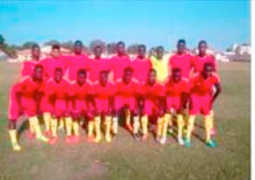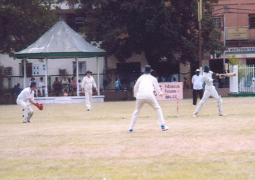More than 20 human rights defenders and activists are currently taking part in an international training session on regional and international human rights mechanisms for civil society actors in
The four-day workshop is aimed at building the capacities of the representatives of African human rights NGOs with the knowledge and skills to effectively use the African human rights mechannisms and international system in their work towards human rights promotion and protection on the continent.
Jointly organized by the Banjul-based African Centre for Democracy and Human Rights Studies (ACDHRS) and partners such as the International Service for Human Rights (ISHR-Switzerland), CONECTAS based in Brazil and the East African Human Rights Regional Office, the training course is being conducted on the sidelines of the NGOs Forum held ahead of the participation of NGOs in the 50th ordinary session of the African Commission on Human and Peoples’ Rights.
Designed to enable African human rights defenders to acquire in-depth understanding of the interaction and complementarities of the regional and international human rights system, the training workshop also coincides with the 30th anniversary of the entry into force of the African Charter on Human and Peoples’ Rights also known as the Banjul Charter, since it was agreed by African leaders in the Gambia capital city.
Speaking at the opening ceremony, Musa Yerro Gassama, regional representative of the UN Office of the High Commissioner for Human Rights of the East Africa Regional Office, said the coincidence of these landmark celebrations provides excellent opportunities for all human rights actors, including pan-African civil society actors, to reflect on the strengths, weaknesses, opportunities as well as challenges faced by African human rights mechanisms.
According to him, a dynamic and autonomous civil society, able to operate freely, knowledgeable and skilled with regards to human rights, is key in securing sustainable human rights protection in all the world’s regions.
Also addressing the gathering was Ms Camila Asano, representative of CONECTAS and coordinator foreign policy and human rights, who said her organization is proud to be associated with such an important training course.
She further stated that issues of human rights are cross-cutting and, therefore, they need a collective approach as the promotion and protection of human rights is everyone’s business.
“This forum is an opportunity for human rights activists to work together and share ideas and experience” she added.
Declaring the training session open, Dr Abubacarr Senghore, interim dean Faculty of the



